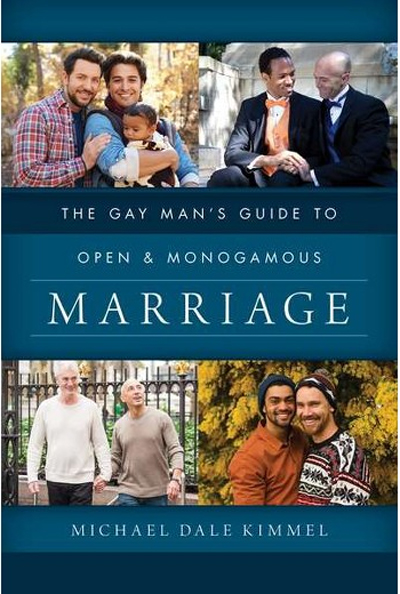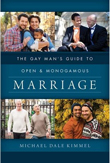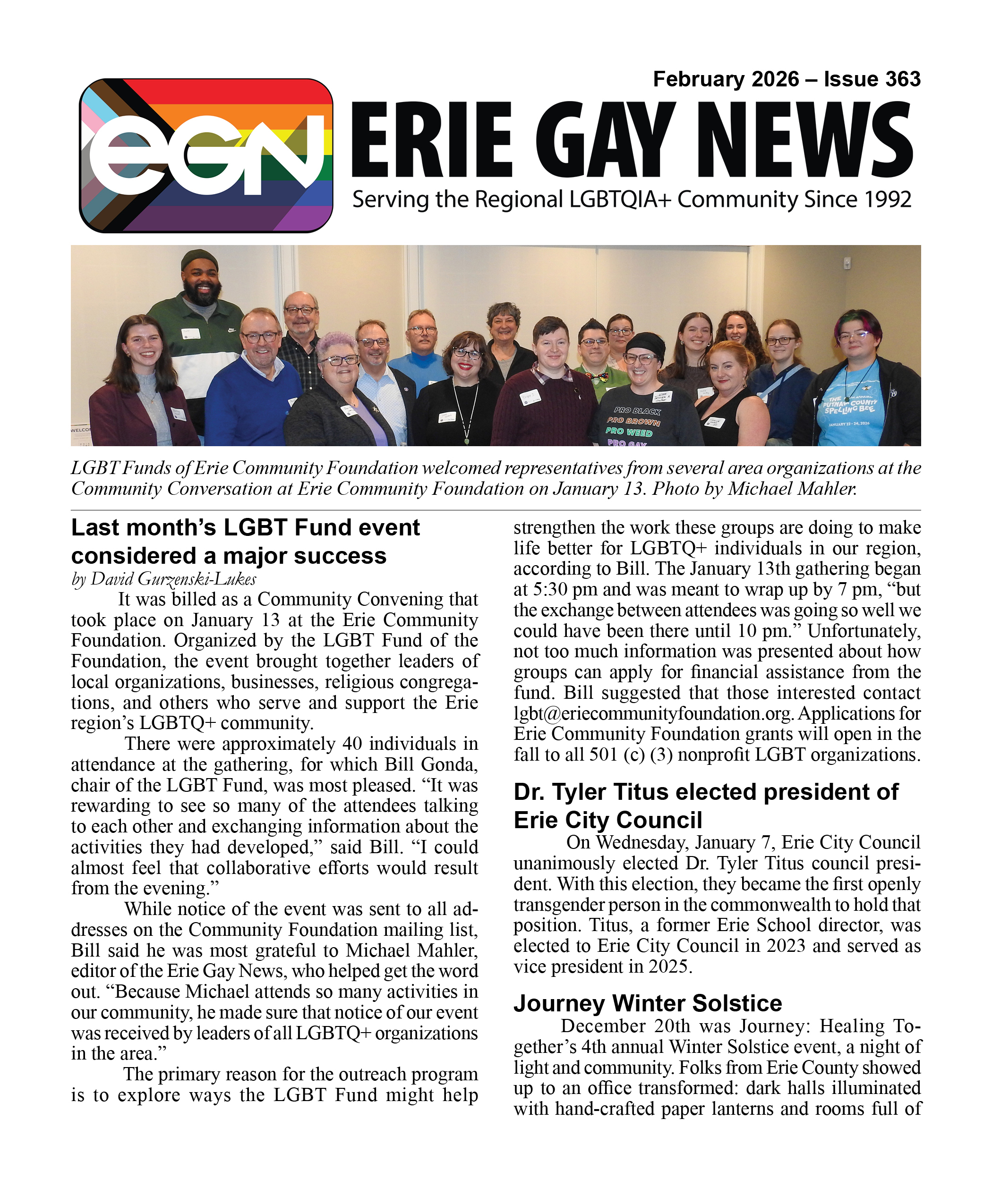San Diego Therapist Michael Dale Kimmel Releases Gay Man's Guide to Open and Monogamous Marriage

San Diego, CA – Psychotherapist and author, Michael Dale Kimmel, announces the release of The Gay Man's Guide to Open and Monogamous Marriage(ISBN 9781442268012), a nonfiction handbook for gay couples that provides an easy-to-follow, practical framework for helping create, adjust, and structure their marriages.
Legal gay marriage is still a relatively new phenomenon, and gay men who are now able to marry often find themselves having to come to terms with the roles they play in the marriage, how to handle differences that come up, and how to address sexual issues between them. Regarding roles and sexual drives, Kimmel explains that two married men often have a stronger desire for sex - wanting more of it and with a wider variety of partners - than married opposite-sex couples. How do these differences work within the structure of a monogamous marriage? Is an open relationship a better structure for gay marriage?
Assuming that gay marriages will emulate heterosexual marriages is neither a valid nor a helpful assumption, according to Kimmel. And there are currently no "rule books" for how a marriage between two men could or should work. While there are lots of books about how to plan a gay wedding, there are virtually none that address what to do after the honeymoon is over (literally and figuratively).
The Gay Man's Guide fills that void. It offers married gay couples (and gay men considering marriage) easy-to-follow, practical advice that they can use to define and fine-tune their marriages. Using helpful examples and first-hand quotes throughout, Kimmel offers a roadmap for gay men who want to be married but have questions and concerns about monogamy and monotony.
"I wanted to create a handbook for gay couples that find themselves struggling with the evolution in their relationships from being lovers and partners to becoming a married couple," said Kimmel. "The Gay Man's Guide helps gay couples define their unique roles within the marriage and outlines how they can accommodate each other's needs and desires without sacrificing their sense of who they are as individuals."
Michael Dale Kimmel, CBT, MSW, LCSW is an openly gay psychotherapist in private practice with a long history of creating and facilitating innovative workshops for the gay community. His website, www.lifebeyondtherapy.com, has received over 22,000,000 hits and over 1,500,000 unique visitors since its debut. He has offered workshops for gay communities all over California on topics such as: Balancing Your Heart, Mind and Libido; Celebrating Our Sexuality; Dating with the Buddha; Finding and Keeping Your Perfect Partner; Gay Sons, Straight Fathers: Acceptance and Healing; The Goodboy/Badboy Workshop; Monogamy or Open Relationship?; Thriving – not just Surviving – in our 40's, 50's and Beyond; and Is Happiness Different for Gay Men? Currently, he writes the Life Beyond Therapy column for: Gay San Diego, The Erie Gay News, The Gayzette and The Letter. He has been a consultant on gay-related issues for Southern California news programs over the past decade and, in recent years, has written for publications including: Buzz, Lavender Lens, LGBT Weekly, The Bottom Line, The Gay and Lesbian Times; Counselingmen.com; Expression Magazine; Gay News Network; Gayfriendlytherapists.com; Pink News; Positivearticles.com; Pulp; Rage; Sarah Lawrence College Magazine and SDGLN.com (San Diego Gay and Lesbian News).
For more information on Michael Dale Kimmel or The Gay Man's Guide to Open and Monogamous Marriage, please visit: https://rowman.com or www.lifebeyondtherapy.com.
Q & A
1. What advice do you have for gay men whose (supposedly monogamous) husbands cheat on them? Should they stay in the relationship? If so, how can you rebuild trust in a marriage?
Cheating can end a relationship or – surprisingly – can make it a lot better. Let me explain:
If your husband has cheated on you, you probably wonder: how can you trust him again? For most of us, it takes time; you can't rush it. He will have to realize this and not pressure you to "get over it". If it's taken you years to build up trust, it may take a while to restore that trust if a whole lot of deception has gone down.
Counseling can help. It's a good sign if he's willing to do it, it shows that he doesn't want to give up on the marriage and that he's willing to change. What I've noticed in counseling couples dealing with infidelity is that if BOTH parties involved want to work it out, they almost always do.
If you and your husband are willing to look at what conditions brought about his cheating, you could both learn a lot about yourselves and each other. In fact, many couples I work with – when cheating is the issue that brings them in to see me - end up CLOSER than they were before. Why? Because they are "forced" by the cheating to take a good look at their marriage and see the mountains of small resentments that they've (typically) been avoiding.
In the short run, it can really suck to hear why your husband cheated on you. But, in the long run, you sure can learn a lot about him and yourself. Maybe you had no idea that he felt neglected or unappreciated. Maybe you took him for granted and just assumed he'd always be there.
Every cheater imagines that they aren't getting some need(s) met and that they "deserve" to feel loved and desired in the way they want. An unfaithful husband may have needs that he's never told you about. Maybe he wants more of you emotionally. Maybe he felt that your sex life was kinda dead or dull.
I'm not saying this to rationalize his behavior; I am saying that if you are both willing to understand why he did what he did, your relationship can become even stronger as a result.
And what about the old adage: "Once a cheater; always a cheater"? It is my experience as a psychotherapist that any habitual or compulsive behavior can be changed if the person wants to change and is willing to do the work to do so.
Cheating is an alarm clock. It tells a married couple that that something's off, something's wrong, something's missing. Often, we have these nagging little voices that tell us: "pay attention; something's wrong", but we don't want to listen to them so we ignore them.
Until the alarm clock gets bigger and louder and we can't ignore it anymore.
If your husband has cheated on you, no one can tell you to stay or go. No one knows your marriage and what the two of you have when no one else is around. So don't take anyone else's advice unless it aligns with your own. Only you know if this man is worth working it out with or if you're better off ending the marriage and moving on.
2. Why is so hard for gay men to be married? Any advice for making it easier?
It does take a lot of work for two people to be happily married…and even more work when that couple is gay.
In the big picture, heterosexuals have it easier. They draw enormous support, continuously and unconsciously, from existing political/social institutions, religion, and cultural history. It's all set up for them. And, let's face it: much of gay life is not very "couple-friendly". For many gay guys, particularly if you're in your twenties or early thirties, gay life is about getting laid, looking good, partying, going out and hooking up with men, men, men! This emphasis on self-pleasuring doesn't align well with the commitments of marriage.
And marriage is not for the weak. By allowing your husband to get to know you intimately, you are inviting those less-than-lovely parts of yourself to come out loud and clear. You and he are, together, opening a Pandora's Box of "previous unresolved life problems"… you know, the box you buried in the backyard, hoping never to open again
When two men commit to each other, the dynamics aren't the same as the hetero model, e.g., a male-male couple may have problems with too strong a desire for a variety of sexual outlets and too weak a desire for vulnerability and intimacy. In hetero couples, the male and female stereotypes often play out, e.g. "Men are from Mars, Women are from Venus" and that kind of stuff. As married gay men, we are inventing our own genres of love and making up the rules as we go. If you have two men from Mars, who cleans up? Who is the more nurturing one? Who is the more career-oriented guy?
Couples with two men often experience more competition with each other than hetero couples do. Conflict is inevitable: arguing and disagreements are part of loving someone. If you think otherwise, you're deluding yourself, and you'll run from relationship-to-relationship looking for the man with whom you can be forever peaceful, calm and loving. Good luck finding him…the Dalai Lama isn't available (and even he has moody days).
Conflict is vital to your growth as a couple. How do you resolve your disagreements, your irritations with each other? How do you talk about them? Or don't you? Can you stand tall (yet flexible) through the tough times, or do you crumble and run away (literally or emotionally)?
Gay marriage is not for sissies. It's for adults who are willing to tolerate discomfort and the messiness of growing together with someone who will inevitably drive you crazy one minute and then incite you to wild kisses the next. We can say, "He's wrong, I'm right" and act like narcissistic little children or we can see our husband as "doing us a favor" by showing us the parts of ourselves that are still screwed up and need work. A truly loving marriage helps us to know ourselves, know our husband, and be willing to spend time and energy to help each other grow to become the men we want to be.
3. How do you keep your identity when you get married and not lose yourself in the relationship?
You fall in love. You get married. You get lost. Sometimes, it feels that way and you wonder what happened to the man you used to be. You wonder how you lost all those good qualities that you used to have, all your independence, all those friends. You lament all the activities you used to enjoy that you've given up. It's tempting to blame your husband for all of this. Perhaps he's lost himself too.
Codependence is another word for feeling hyper-responsible for someone else and putting their needs first. If you are co-dependent in your marriage, expect to feel resentment. We all have moments of codependence when we put others first, this is a normal, healthy thing. However, if we find that we repeatedly put ourselves and our needs last, then we may be losing ourselves…sacrificing our own well-being for that of our husband or other people we care about.
I like the idea of "healthy distance" in a marriage: each guy needs friends of his own and activities he does on his own. It isn't emotionally healthy to share everything with your husband, that usually results in a desperate groping for emotional closeness that makes you clingy and needy.
Feeling abandoned? This is a sign that you're really lost yourself: your sense of safety and identity depends on feeling loved by other people, and when those people temporarily (or not) turn their love away from you, you panic. Feeling abandoned is one version of losing yourself. We believe that the only way to make our husband (or anyone) love us is to deny who we really are and perform for them: making them approve of us in order to "win" their love.
We all started out in life knowing we were lovable exactly as we are, but then – somewhere along the way - us codependent folks were told that we were worthy of love only if we behaved in a certain way. And, of course, it was impossible to behave in this way all the time. What a set-up for insecurity!
Luckily, you're not stuck there: with some help from your husband, friends and others who love you, you can begin to "unhook" from the chronic and debilitating need to please.
Don't put it off any longer. If you feel like you've lost yourself in your marriage, the time to find yourself is now.
4. It seems that nobody is faithful to their partner anymore, whether they're married or not. Why is this? Is there something wrong with us gay guys?
Let's talk about monogamy. Just because your relationship may have been monogamous, doesn't mean it's the perfect model for everyone. If it worked for you, great. It doesn't work for everyone: take a minute and notice how judgmental (or not) you are. I've heard single gay guys that that they're "disgusted" with men who aren't monogamous in their relationships. This issue pushes a lot of buttons. If it pushes yours, I invite you to take responsibility for your reactions and do a little introspection to see why "open" relationships mean that there's "something wrong with us" as gay men.
Many relationships between men are not 100% monogamous. Is this a crime? Many of my clients in long-term relationships tell me that their relationships go through cycles of being "open" and "closed". Neither is better, they're just different. The book I've written looks at the benefits and challenges of each. If you want a monogamous marriage, good for you! Section 3 of the book is all about that. If you opt for an open marriage, Section 2 of the book will help you navigate those challenges. If you want a marriage that is fluid and flexible, sometimes monogamous and sometimes not: congratulations! You're normal. Most gay relationships I know go through periods where they're open and times when they're not. How you and your husband decide that is completely up to you.
There's nothing wrong with us. As gay men, we have the opportunity to question the institution of marriage and reinvent it so that it really works for us. Perhaps, in doing so, we'll be able to improve upon the 50% divorce rate in the heterosexual community. And perhaps we can help our heterosexual brothers and sisters begin to reinvent their own marriages as well.
5. How do you handle gay divorce after being married for several years? How do you date? Or do you?
First of all, it's hard for anyone to end a marriage. No matter how long the marriage lasted, when it ends, life changes big-time. Usually, you need to "grieve" the end of the relationship, and there is no fixed time frame on that. In addition, you've been out of the dating scene for quite a while, maybe a long while!
As a newly divorced man, give yourself plenty of time to readjust. Keep your expectations reasonable and realize that it usually takes a minimum of 6-12 months after a long-term relationship for the "shock" to wear off. The transition to being single doesn't happen overnight: it's a process, not an event.
When you're ready to start "dating", take it slow. Do you remember what flirting is? Perhaps your memory is a bit hazy. While some guys take flirting as playful fun; other guys may take it as a sign that you'd like to have sex with them. You may think you're just being friendly and outgoing and it's being misinterpreted as "I'm available for sex and you look good to me". I've had newly-divorced clients tell me: "I thought I was just being friendly, but it seems that these days friendly means 'let's hook up'. I need to recalibrate!"
You too may need to recalibrate. It's okay, you can do it. Take your time. If you were married for ten years, things are different now then they were in 2007. Social media has changed dating tremendously.
When you're ready to date, I invite you to begin to notice how other men respond to you: consider it as an experiment. Try smiling, starting a conversation, being friendly…and see what happens. If it's been a long time since you're been single, your social skills may need some fine-tuning. Luckily, you're in charge! Have fun with it. Yes, you can even enjoy the process of dating again. You're older, wiser and more experienced now, you have more to offer than when you were last single. Remember just how wonderful you really are and enjoy it as much as you can.
Excerpt
For centuries, heterosexual people have defined what marriage is. It started out as a type of possession: "I own you." Hardly anchored in love, was it? And yet, this is the model that most of the human race has embraced for hundreds of years. Only in the last century or so has marriage begun to be based on love, mutual respect and understanding.
As two men considering getting married, we no longer have to do it "that" way. This is a cause for rejoicing! This is real freedom! So why aren't we more excited about this? Because this kind of freedom isn't easy. It's quite daunting to invent or re-invent a cultural institution that's been around longer than anyone alive can remember. It's so much easier to just follow what straight people have been doing and – maybe – modify it a little bit, tweak it just a tad.
This is certainly an option. But, given the power of our community to create and invent our own norms and institutions, why would we settle for that?
Marriage between two men is – in my experience as a psychotherapist – dramatically different than heterosexual marriage. It's a double testosterone marriage. With all that testosterone, sex is probably going to be handled quite differently for us than for some straight couples or even for some lesbian couples.
Let's be clear, I'm not saying that we are helpless victims of our libidos. Instead, we can be intelligent, aware creators of a new kind of marriage that acknowledges that two men together have unique gifts (and challenges) that other kinds of couples don't. Be prepared to rethink everything you've been told about marriage. The bottom line here is: Finally. we get to do it our way.
Many of our relationships start off monogamous. However, because sex is so important to a lot of us, it is my experience that about half of our relationships – over time - are not 100% monogamous. Whether married or not, many gay relationships begin to "open up" after the first few years. In the book, we'll follow two couples as they explore how to handle the desire for sex outside their marriages.
Many gay couples do want monogamy. But these couples often find themselves smack in the center of a community that only pays lip service to it. These couples want to be faithful to each other, but their community encourages them (both overtly and covertly) not to. Readily available sex doesn't make monogamy very easy.
I've had clients tell me that, shortly after they got married, their friends began to ask them questions like, "So, are you really going to be faithful to (husband's name)?" and "Everyone starts out monogamous at the beginning, but how do you pull that off when everyone around you wants to have sex with you?"
One client even told me, "Now that I'm married, so many more guys are hitting on me at the gym. I guess now that I'm not available, I'm a lot more desirable."
Sound like anyone you know?
For many of us considering marriage - or already married - the question of monogamy or open relationship looms large: it's both terribly important and terribly confusing. Deciding between the joys of Infinite sexual possibilities or the security of one person for the rest of your life is a huge Catch-22. How do we "win" here?
Many of my coupled gay clients, having examined traditional heterosexual marriage-based relationships, find them lacking. Other men, however, think that the idea of "emotional monogamy and sexual non-monogamy" is a cop-out, a way to rationalize not being faithful to your husband.
While this is a controversial issue, it's also an opportunity for us as married or potentially-married gay men to be social pioneers and make our own way. And I'm not just talking about sex here.
From my years of working with couples, I've noticed that gay couples typically experience two challenges more intensely than do opposite-sex or lesbian couples: competition and conflict. And that brings us to the key reason: testosterone.
Biologically, testosterone is crucial in maintaining maintain muscle mass, bone density and sex drive. It helps keep us youthful and energetic. However, it has its down sides: too much testosterone has been associated with risky behavior - excessive consumption of alcohol and recreational drugs, high-risk sex, driving at unsafe speeds - in many research studies. Anecdotally, I've observed that men with higher testosterone levels typically have a hard time curbing their aggression; this is bound to play out in their marriages.
Science has discovered that men's testosterone levels typically peak in our twenties and thirties, slowly decrease in our forties and fifties and are noticeably lower from our sixties onward. There are exceptions to this, of course, but this is the general trend. Therefore, it's not surprising to me that these "double testosterone" marriages of men in their twenties and thirties are much more likely to have formidable challenges in the competition and conflict departments.
When we get married young, our testosterone levels are higher, and we're likely to have lots of energy that we may not know how to channel constructively. We bring it into our marriage . . . and we compete….
We compete with our husbands. A lot. And we compete over silly little things – like, how to stack dishes in the dishwasher – and some pretty important things – like, who's the smartest, who makes the most money or is the most successful.
Competition, in moderation, is healthy. It's the "juice" of being alive, wanting to do well, enjoying success. But, too much competition leads to conflict, and conflict in a double testosterone marriage can easily lead to arguments that escalate out of control both verbally and physically.
On the other end of the testosterone spectrum, I've noticed that decreasing testosterone levels are often related to lower levels of sexual satisfaction (and more open relationships) in gay couples in their forties and fifties. Why? If sex has been a major cornerstone of our marriages/relationships and we hit an age where our sexual desires and libido take a dive, we may hope that opening up our relationship will be just the panacea we're looking for.
To be blunt – testosterone can make us too horny when we're younger (creating trouble in marriages), and too disinterested in sex when we're older.
Same-sex marriage has been a long time coming – a few thousand years or so - and now that it's finally here, many gay, bisexual and transgender men may think that it's a bad idea to "rock the boat" by discussing the kinds of ideas that this book presents.
I believe that now is the perfect time to question what gay marriage can, should and will be, while it is still relatively new, fresh and malleable.
For the double testosterone marriage, "monogamy or open relationship?" is a question whose time has come.
About the Author

|
Michael Dale KimmelI am a California-licensed psychotherapist (LCSW 20738). With over twenty-five years of counseling experience, I bring warmth, practical insight and a healthy sense of humor to my practice. |



